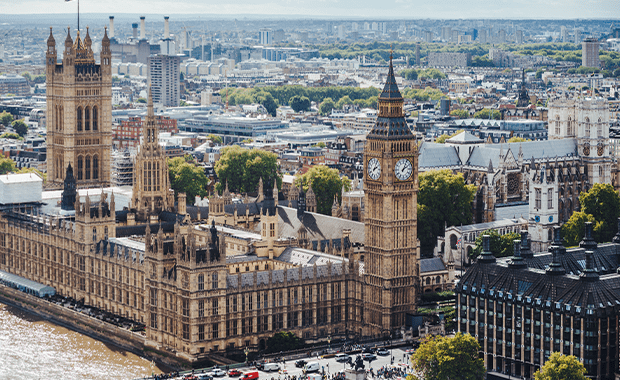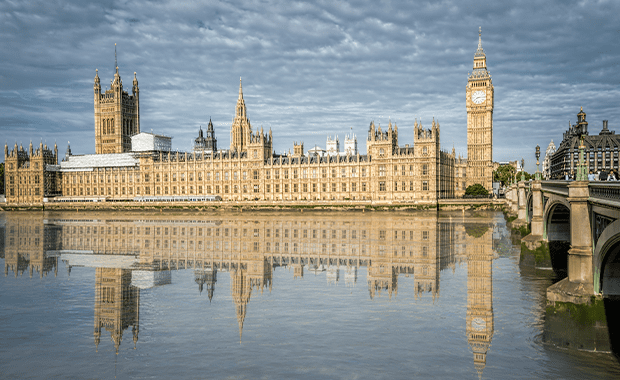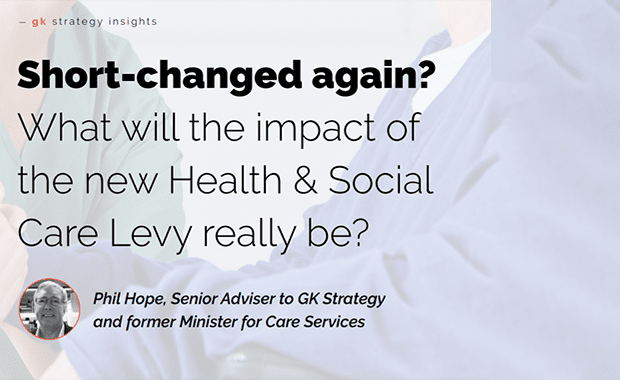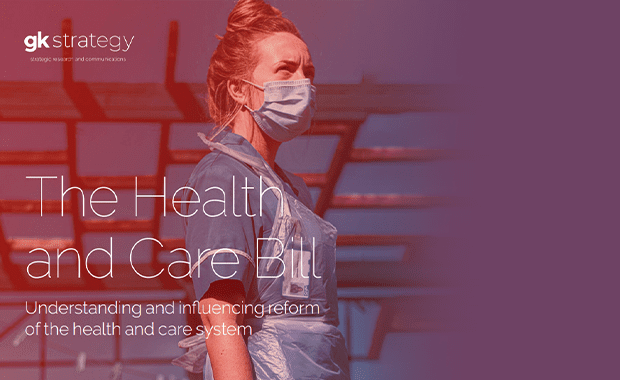Read GK’s newest insight paper on the Government’s Levelling Up White Paper here: Levelling Up White Paper Insights
To discuss what the White Paper means for your business or investments email jack@gkstrategy.com to fix up some time.

Read GK’s newest insight paper on the Government’s Levelling Up White Paper here: Levelling Up White Paper Insights
To discuss what the White Paper means for your business or investments email jack@gkstrategy.com to fix up some time.

GK Adviser, and former Health Minister, Phil Hope shares his thoughts on the Government’s proposals for health and care reform in our newest blog ‘Integration White Paper Joining up care for people, places and populations: A genuinely radical leap forward’
Read Phil’s thought’s here: Integration White Paper – Joining up care for people places and populations

The Omicron variant, parliamentary scrutiny and a distracted Government are all hindering the development of Integrated Care Systems (ICSs) and there are concerns about the framework that sits around them.
Amidst the capacity and workforce pressures faced by the health service this winter, longer-term ambitions for the transformation of our health and care system are also feeling the strain.
The timelines for formalisation and statutory responsibility of the 42 Integrated Care Systems (ICSs) in England have been pushed back. The intention is now for them to be given their full statutory responsibilities by 1st July this year rather than 1st April as originally planned. The primary reason given for this delay is to allow parliament an acceptable amount of time to review and approve the proposed changes.
Even with this extension, there is growing frustration that this wholescale reconfiguration of the health system is not being accompanied by the required due diligence and planning.
The Health and Care Bill – the legislation that will enable these reforms – has reached the House of Lords and the early signs are the Government are in for a bumpy ride.
It’s times like this where the second chamber can demonstrate both its value and its limitations. More sector specialists, less constrained by time pressures and careerism often makes for a better assessment of the changes proposed. Any substantive improvements to the legislation are likely to come from the Lords, the challenge or opportunity depending on your perspective is that any amendments must be approved by the Commons, where the Government has a strong majority and can whip MPs effectively. Therefore, sensible Lords amendments may well be reversed prior to the Bill receiving Royal Assent.
The concern for the Government is that the Lords are starting to highlight that the legislation is poorly planned and drafted. In the Autumn of 2021, Health Secretary Sajid Javid admitted that “significant areas of contention” had yet to be resolved with the reconfiguration of the health system the Bill and he’s being proved right.
The initial assessment from the Lords has been both scathing and embarrassing for the Government. the Delegated Powers and Regulatory Reform Committee has stated that the Bill “falls so short of the standards which the Committee — and Parliament — are entitled to expect” and the legislation is a perfect example of a wider issue of “how much disguised legislation a Bill can contain and offends against the democratic principles of parliamentary scrutiny”.
Furthermore, just as the Bill was due to begin its Committee Stage the Lords Shadow Health Spokesperson, Baroness Thornton, also identified that proceedings couldn’t legally begin without an impact assessment related to parts of the legislation. The Government has apologised for the oversight and the very short notice that they were shared.
Taken together, these issues all add to the impression that the reforms are being rushed through, at a time of extreme pressure on the health system with not enough evaluation of the impact and practical implementation of new powers and accountabilities. The biggest concern among those who favour greater health devolution is that the Bill will reinforce the instinctive tendencies of the government and NHSE towards greater centralisation and prescription, and continued NHS dominance of the health and care agenda.
During January and early February 2022, the Lords will undertake a line-by-line examination and vote on each clause of the legislation – including the long list of amendments tabled by Peers.
Trying to predict which amendments will garner enough support is difficult – let alone which the Government may concede on – but topics that have high profile backers and cross-party support include:
Of course, it’s not just the Parliamentarians that are frustrated, many ICS leaders – preparing to go live with their accountable duties – only found out about the delay via third party sources with the Department of Health & Social Care and NHS England’s communications leaving much to be desired. Louise Patten, Chief Executive of NHS Clinical Commissioners recently outlined that that the delay causes confusion about local leadership responsibilities and partnership working with local government and threatens accountability.
Moreover, the delay in publication of the Integration White Paper, further guidance on developing place-based Integrated Care Partnerships and the Levelling Up White Paper also means that many areas are continuing to develop new local partnership governance arrangements in the absence of a national policy framework.
And of course, all of this hugely matters to patients, the healthcare workforce and organisations trying to supply the health system with the services and technology it needs.
Organisations with a stake in health care delivery need to ensure that they monitor the passage of this legislation and importantly seek the practical understanding of where accountability and commissioning responsibility lies within ICS ‘footprint’ regions.
For further information about the implementation and impact of ICS’, please email joecormack@gkstrategy.com

Following the publication of the highly anticipated Adult Social Care White Paper, Phil Hope, former Care Minister, assesses the plans announced and identifies what more needs to be done to improve the sector.
Read Phil’s thoughts in Deeds not Words.
For more information, please contact GK’s Head of Health, Joe Cormack on joecormack@gkstrategy.com

What will the impact of the new Health & Social Care Levy really be? Phil Hope, former Minister for Care and GK Adviser shares his thoughts here: Health and Social Care Funding Levy

The Health and Care Bill is the most significant piece of health legislation this parliament, and will shape the structures of the NHS, how services are delivered, and improvements to population health over the next decade.
Organisations not planning ahead for these changes, may find themselves unable to cut through to the necessary decision-makers in local regions to ensure they can continue to deliver services to institutions and patients.
To read more about how GK Strategy can advise and support you with these changes you can find more here in our analysis on the Health & Care Bill
For any questions or to discuss the health & care political and policy landscape contact joecormack@gkstrategy.com